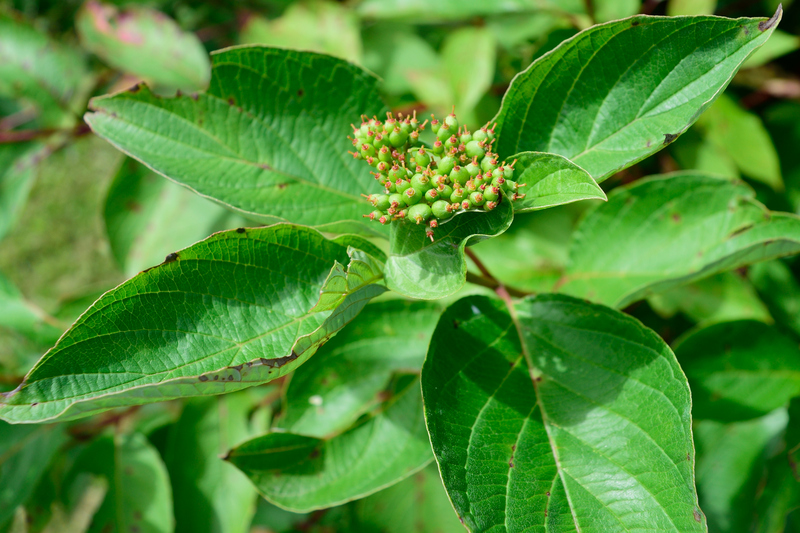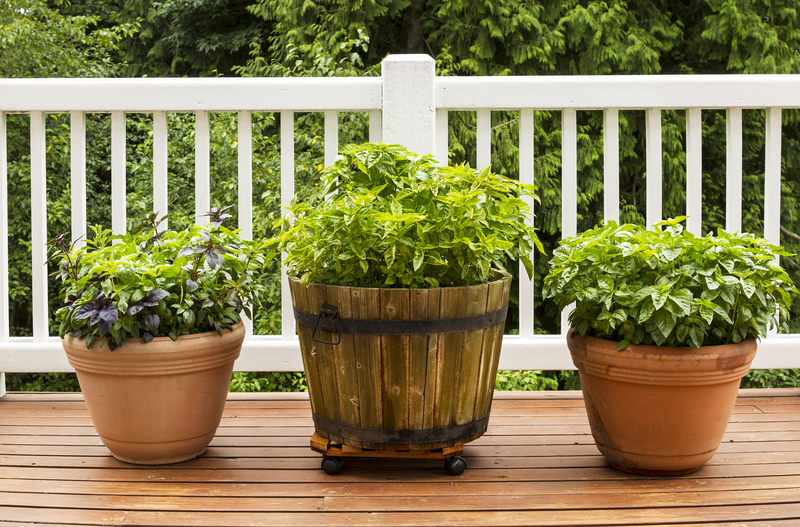9 Essential Gardening Tips for Beginners to Cultivate Success
Posted on 24/05/2025
9 Essential Gardening Tips for Beginners to Cultivate Success
Gardening is a rewarding and relaxing hobby that brings you closer to nature while allowing you to create a beautiful space to enjoy. For those new to gardening, getting started may feel overwhelming, but with the right guidance, anyone can nurture a thriving garden. In this comprehensive guide, we will explore 9 essential gardening tips for beginners to cultivate success, helping you grow healthy, vibrant plants and avoid the most common pitfalls.
Why Gardening is the Perfect Hobby for Beginners
Whether you have a sprawling backyard or a tiny balcony, gardening presents an ideal opportunity for individuals of all skill levels. It encourages physical activity, reduces stress, and can even contribute to a healthier diet through home-grown produce. For beginner gardeners, learning the fundamentals will set the foundation for years of lush growth and satisfaction.

1. Start Small and Choose the Right Garden Location
One of the most vital gardening tips for beginners is to start small. Trying to cultivate a vast garden all at once can be overwhelming, costly, and discouraging. Instead, pick a manageable plot or a few containers to practice your skills.
- Sunlight: Most vegetables, herbs, and flowering plants need at least 6 hours of direct sunlight daily for optimal growth.
- Accessibility: Choose a location that is easy to access for watering, pruning, and harvesting.
- Drainage: Ensure the area does not collect standing water after rain. Good drainage prevents root rot and other fungal issues.
Tip: Observe your chosen area throughout the day to determine its sunlight exposure and evaluate its suitability for gardening.
2. Get to Know Your Soil
Soil quality is fundamental to successful gardening. Before planting, test your soil to determine its type and pH level. You can use a simple soil testing kit or send a sample to a local gardening center for analysis.
- Loamy Soil: The ideal garden soil is loamy--rich in nutrients, well-draining, yet able to retain moisture.
- Soil Amendments: If your soil is too sandy, clay-heavy, or acidic/alkaline, incorporate organic matter such as compost, peat moss, or aged manure.
Did you know? Amending your soil improves aeration and water retention, giving your plants the healthy foundation they need to thrive.
3. Select Easy-to-Grow Plants
For those new to gardening, it's wise to start with beginner-friendly plants that are resilient and require minimal maintenance. Some popular choices include:
- Vegetables: Lettuce, radishes, carrots, and green beans
- Herbs: Basil, mint, rosemary, thyme
- Flowers: Marigolds, sunflowers, zinnias, pansies
Choosing the right plants gives you a greater chance of early success and makes gardening fun rather than frustrating.
4. Understand Watering Basics
Consistent watering is crucial for healthy plant growth, but overwatering or underwatering can be harmful. As a beginner, follow these essential watering guidelines:
- Morning Watering: Water your plants in the early morning to reduce evaporation and allow leaves to dry, which helps prevent disease.
- Check Soil Moisture: Stick your finger about an inch into the soil. If it feels dry at that depth, it's time to water.
- Deep, Infrequent Watering: Water deeply but less frequently to encourage strong root development.
- Avoid Wetting Leaves: Focus water at the base of plants. Wet foliage can invite fungal diseases.
Pro Tip: Consider using mulch to retain soil moisture and reduce watering frequency!
5. Feed Your Plants with the Right Fertilizer
Understanding plant nutrition is key for novice gardeners. Plants need nitrogen, phosphorus, potassium, and other micronutrients to flourish. As you embark on your gardening journey:
- Opt for Balanced Fertilizer: For most gardens, a slow-release, balanced fertilizer (for example, 10-10-10) works well.
- Apply Sparingly: More is not always better. Over-fertilizing can harm plants and pollute the environment.
- Organic Options: Use organic fertilizers like compost, worm castings, or fish emulsion for a natural boost.
Remember: Always follow package instructions and adjust based on the specific requirements of your chosen crops.
6. Learn the Art of Pruning and Deadheading
Regular pruning and deadheading--or removing faded flowers--keep your plants vigorous and attractive. Here's how you can master these gardening fundamentals:
- Prune for Shape and Size: Trim back overgrown branches and stems to encourage bushier growth and improve airflow.
- Remove Dead or Diseased Parts: Snipping away damaged leaves and stems helps prevent the spread of pests and diseases.
- Deadhead to Encourage Blooming: Removing spent flowers directs the plant's energy toward producing more blooms rather than seeds.
Tools: Invest in a sharp, clean pair of pruning shears to make clean cuts without damaging your plants.
7. Master Pest and Disease Management
Among the most important tips for new gardeners is learning how to identify and manage pests and plant diseases. Early detection and intervention are critical for keeping your garden healthy.
- Inspect Regularly: Check plants daily for signs of insects, holes in leaves, yellowing, or wilting.
- Encourage Beneficial Insects: Ladybugs and lacewings naturally control aphids and other pests.
- Use Organic Remedies: Neem oil, insecticidal soaps, or diatomaceous earth can manage many pests without harming pollinators.
- Practice Crop Rotation: Changing plant locations each year prevents soil-borne diseases.
Remember: Healthy, well-watered, and fertilized plants are less susceptible to pest damage and disease.
8. Understand the Importance of Mulching
Mulch is a gardener's secret weapon. It helps regulate soil temperature, retains moisture, suppresses weeds, and adds nutrition as it breaks down. For beginner gardeners, mulching is an absolute must.
- Organic Mulch: Use shredded leaves, straw, wood chips, or grass clippings for vegetable and flower beds.
- Apply Correctly: Spread mulch in a 2-3 inch layer around plants, avoiding direct contact with stems to prevent rot.
- Replenish Annually: Refresh mulch each season to maintain its effectiveness and improve soil health.
Tip: Mulching is one of the simplest ways beginners can improve their garden's success with minimal effort.
9. Be Patient and Keep Learning
Perhaps the most crucial gardening tip for beginners is to embrace patience. Plants grow on their timetables, not ours. Don't be discouraged by setbacks--every mistake is an opportunity to learn.
- Observe and Adapt: Pay attention to which plants thrive and which do not, and adjust your practices accordingly.
- Read and Research: Seek out gardening books, attend local workshops, and join gardening communities for ongoing support.
- Keep a Garden Journal: Record planting dates, weather conditions, and plant performance to track progress each year.
- Celebrate Milestones: Rejoice in your first sprouting seed or harvest--it's all part of the gardening journey.
Remember: Gardening is about enjoying the process as much as the results. With time and practice, you'll cultivate not just a successful garden but a lifelong passion.

Bonus Gardening Tips for Beginner Success
- Invest in Quality Tools: A sturdy trowel, pruners, gloves, and watering can will last for years and make gardening easier.
- Label Your Plants: It's easy to forget what's planted where. Use tags or markers to keep track.
- Plan for the Seasons: Research the best times to plant and harvest in your region to maximize yields.
- Grow What You Love: Choose plants you enjoy, whether for their beauty, fragrance, or edible harvest.
Conclusion: Achieving Gardening Success as a Beginner
Beginning your gardening journey doesn't have to be intimidating. By following these 9 essential gardening tips for beginners to cultivate success, you'll lay a solid foundation for a flourishing, beautiful garden--no matter your space or experience. Remember to start small, stay patient, and keep learning. In no time, you'll witness the fruits of your labor and enjoy the many benefits that gardening offers.
Are you ready to get your hands dirty? Share your first gardening project or questions in the comments below!
Latest Posts
Explore the top 9 fast-growing hedges for privacy solutions
Designing a Safe Haven for Kids in Your Backyard
Shielding Your Garden from the Wrath of Severe Weather

